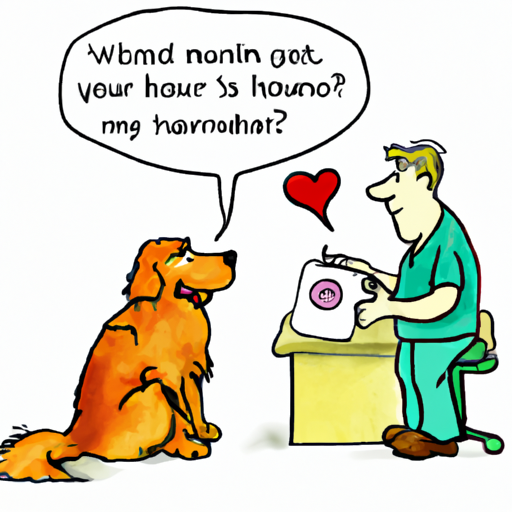Introduction
As a caregiver, your dog’s health is your utmost priority. You love them like your little ones, and when they fall sick, it’s as if a piece of your heart gets sick too. Heartworm disease is one of those illnesses that, if left untreated, can lead to severe complications in your beloved canine. But rest assured, it is curable and preventable. This comprehensive guide will walk you through how to cure heartworm in dogs, and how to provide the best care for your furry friend during this process.
1. Understanding Heartworm Disease
Heartworm disease is a serious and potentially fatal disease that primarily affects dogs, but can also infect cats and other mammals. Here’s how it works:
- Heartworms are spread through the bites of infected mosquitoes.
- When an infected mosquito bites your dog, it transmits heartworm larvae into their bloodstream.
- These larvae mature into adult heartworms in about six to seven months, primarily residing in the heart, lungs, and associated blood vessels.
- If left untreated, these adult worms can cause severe lung disease, heart failure, organ damage, and ultimately death.
2. The Diagnosis
Before you can treat heartworm disease, you first need to know if your dog has it. This involves a few steps:
-
Clinical examination: Your vet will look for signs such as a soft, dry cough, lethargy, weight loss, and decreased appetite.
-
Blood tests: These can reveal the presence of heartworm proteins (antigens) in your dog’s blood.
-
Imaging tests: X-rays or ultrasounds can show changes in your dog’s heart and lungs that are indicative of heartworm disease.
| Symptoms | Diagnostic Test |
|---|---|
| Soft, dry cough | Clinical Examination |
| Lethargy, weight loss | Blood Test |
| Decreased Appetite | Imaging Tests |
3. The Treatment
Once diagnosed, your vet will put together a treatment plan. This generally involves:
-
Stabilizing your dog’s condition: This might include providing heart medications, good nutrition, and plenty of rest.
-
Killing the adult heartworms: An FDA-approved medication called melarsomine dihydrochloride is usually used. It’s given as a series of injections over a 24-hour period.
-
Killing the immature heartworms: This is achieved through a month-long course of doxycycline and ivermectin.
4. Post-Treatment Care
After treatment, your role as a caregiver becomes crucial. You’ll need to:
- Limit your dog’s physical activity till the doctor advises otherwise.
- Continue with any prescribed medication.
- Schedule follow-up visits to ensure the heartworms have been eliminated.
5. Prevention is Better than Cure
The best way to deal with heartworm disease is to prevent it from happening in the first place. Here’s how:
- Regular heartworm prevention medication is key. It’s available as pills, topical gels, or injections.
- Regular testing for heartworms is also important, as early detection can make treatment more effective.
FAQ
Q. Can heartworm disease be cured?
A. Yes, heartworm disease can be cured, but the treatment is costly and can cause significant discomfort to your pet.
Q. How is heartworm disease transmitted?
A. Heartworm disease is transmitted through the bites of infected mosquitoes.
Q. How can I prevent my dog from getting heartworms?
A. Regular heartworm prevention medication and testing are the best ways to prevent heartworm disease.
Q. What are the symptoms of heartworm disease?
A. Symptoms include a soft, dry cough, lethargy, weight loss, and decreased appetite.
Q. What happens after the treatment?
A. After treatment, you have to limit your dog’s physical activity, continue with any prescribed medication, and schedule follow-up visits to ensure the heartworms have been eliminated.



